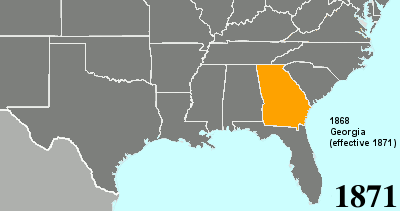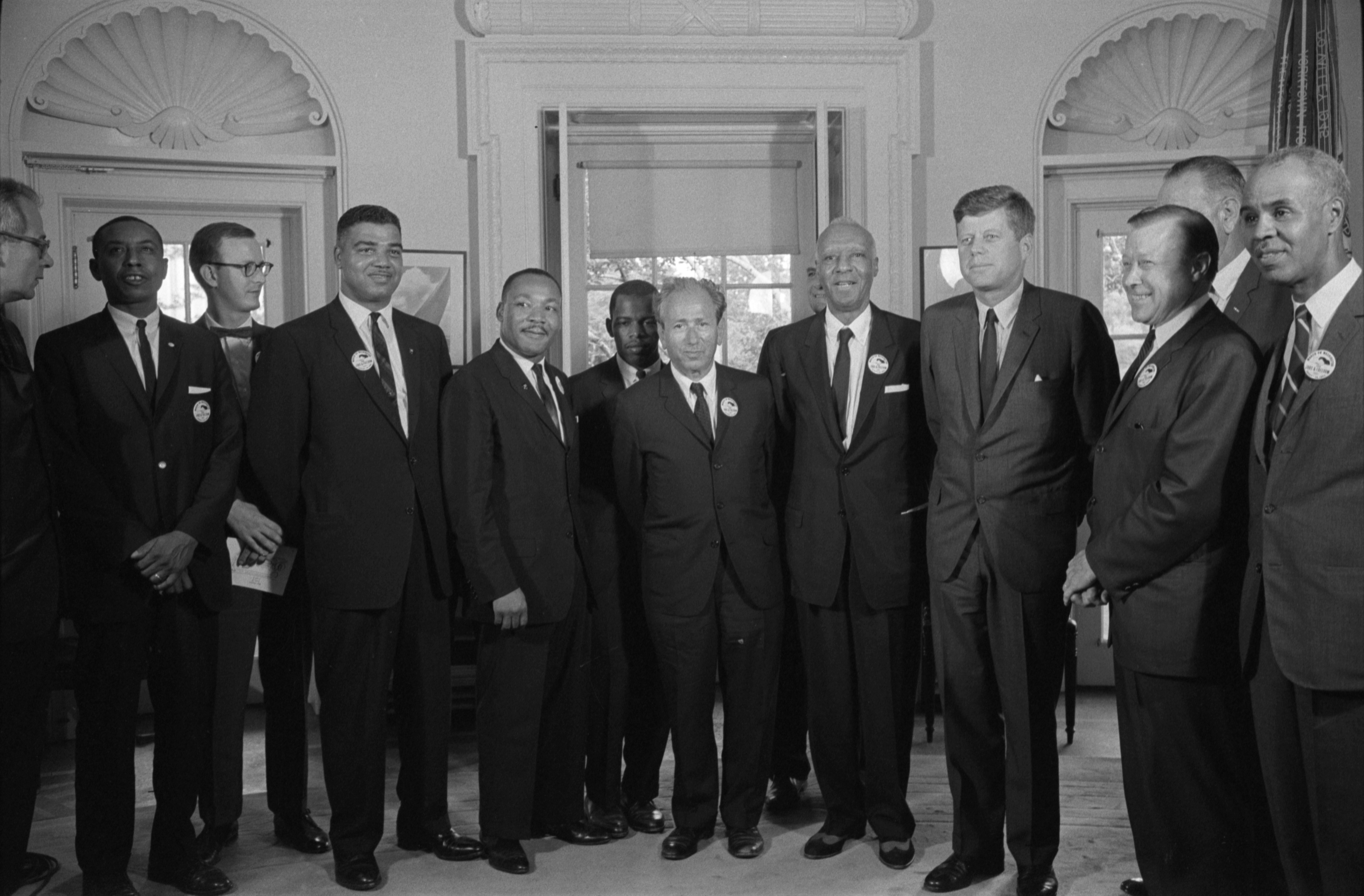|
Robert T. Ashmore
Robert Thomas Ashmore (February 22, 1904 – October 5, 1989) was a U.S. Representative from South Carolina, cousin of John D. Ashmore. Born on a farm near Greenville, South Carolina, Ashmore attended the public schools of Greenville. He graduated from Furman University Law School, Greenville, South Carolina, in 1927. While a student he engaged in agricultural work, retail sales, and as a substitute rural mail carrier. He was admitted to the bar in January 1928 and engaged in the practice of law in Greenville, South Carolina. He served as solicitor of Greenville County Court from 1930–1934, and then as a solicitor of the thirteenth judicial circuit of South Carolina from 1936–1953. During World War II, while on official leave from duties as a solicitor, Ashmore volunteered for service in the United States Army in December 1942, serving in the United States and overseas until discharged from active duty in May 1946, as a lieutenant colonel in the United States Army Res ... [...More Info...] [...Related Items...] OR: [Wikipedia] [Google] [Baidu] |
South Carolina
South Carolina ( ) is a U.S. state, state in the Southeastern United States, Southeastern region of the United States. It borders North Carolina to the north and northeast, the Atlantic Ocean to the southeast, and Georgia (U.S. state), Georgia to the west and south across the Savannah River. Along with North Carolina, it makes up the Carolinas region of the East Coast of the United States, East Coast. South Carolina is the List of U.S. states and territories by area, 11th-smallest and List of U.S. states and territories by population, 23rd-most populous U.S. state with a recorded population of 5,118,425 according to the 2020 United States census, 2020 census. In , its GDP was $213.45 billion. South Carolina is composed of List of counties in South Carolina, 46 counties. The capital is Columbia, South Carolina, Columbia with a population of 136,632 in 2020; while its List of municipalities in South Carolina, most populous city is Charleston, South Carolina, Charleston with ... [...More Info...] [...Related Items...] OR: [Wikipedia] [Google] [Baidu] |
Circuit Solicitor
In the United States, a district attorney (DA), county attorney, county prosecutor, state attorney, state's attorney, prosecuting attorney, commonwealth's attorney, or solicitor is the chief prosecutor or chief law enforcement officer representing a U.S. state in a local government area, typically a county or a group of counties. The exact scope of the office varies by state. Generally, the prosecutor is said to represent the people of the jurisdiction in the state's courts, typically in criminal matters, against defendants. District attorneys are elected in almost all states, and the role is generally partisan. This is unlike similar roles in other common law jurisdictions, where chief prosecutors are appointed based on merit and expected to be politically independent. The prosecution is the legal party responsible for presenting the case against an individual suspected of breaking the state's criminal law, initiating and directing further criminal investigations, guiding an ... [...More Info...] [...Related Items...] OR: [Wikipedia] [Google] [Baidu] |
Twenty-fourth Amendment To The United States Constitution
The Twenty-fourth Amendment (Amendment XXIV) of the United States Constitution prohibits both US Congress, Congress and the US states, states from requiring the payment of a Poll taxes in the United States, poll tax or any other tax to vote in US federal election, federal elections. The amendment was proposed by Congress to the states on August 27, 1962, and was ratified by the states on January 23, 1964. Southern United States, Southern states of the former Confederate States of America adopted Poll taxes in the United States, poll taxes both in their state laws and in their state constitutions throughout the late-19th and early-20th centuries. This became more widespread as the Democratic Party regained control of most levels of government in the South in the decades after Reconstruction era of the United States, Reconstruction. The purpose of poll taxes was to prevent African Americans and poor whites from voting. Use of the poll tax by states was held to be constitutional b ... [...More Info...] [...Related Items...] OR: [Wikipedia] [Google] [Baidu] |
Civil Rights Act Of 1968
The Civil Rights Act of 1968 () is a Lists of landmark court decisions, landmark law in the United States signed into law by President of the United States, United States President Lyndon B. Johnson during the King assassination riots. Titles II through VII comprise the Indian Civil Rights Act, which applies to the Native Americans in the United States, Native American tribes of the United States and makes many but not all of the guarantees of the United States Bill of Rights, U.S. Bill of Rights applicable within the tribes. (That Act appears today in Title 25, sections 1301 to 1303 of the United States Code). Titles VIII and IX are commonly known as the Fair Housing Act, which was meant as a follow-up to the Civil Rights Act of 1964. (This is different legislation than the Housing and Urban Development Act of 1968, which expanded housing funding programs.) While the Civil Rights Act of 1866 prohibited discrimination in housing, there were no federal enforcement provisions. T ... [...More Info...] [...Related Items...] OR: [Wikipedia] [Google] [Baidu] |
Civil Rights Act Of 1964
The Civil Rights Act of 1964 () is a landmark civil rights and United States labor law, labor law in the United States that outlaws discrimination based on Race (human categorization), race, Person of color, color, religion, sex, and national origin. It prohibits unequal application of voter registration requirements, racial segregation in schools and public accommodations, and employment discrimination. The act "remains one of the most significant legislative achievements in American history". Initially, powers given to enforce the act were weak, but these were supplemented during later years. Congress asserted its authority to legislate under several different parts of the United States Constitution, principally its Enumerated powers (United States), enumerated power to regulate interstate commerce under the Commerce Clause of Article One of the United States Constitution#Section 8: Powers of Congress, Article I, Section 8, its duty to guarantee all citizens Equal Protectio ... [...More Info...] [...Related Items...] OR: [Wikipedia] [Google] [Baidu] |
Civil Rights Act Of 1960
The Civil Rights Act of 1960 () is a United States federal law that established federal inspection of local voter registration polls and introduced penalties for anyone who obstructed someone's attempt to register to vote. It dealt primarily with discriminatory laws and practices in the segregated South, by which African-Americans and Tejanos had been effectively disenfranchised since the late 19th and start of the 20th century. This was the fifth Civil Rights Act to be enacted in United States history. Over an 85-year period, it was preceded only by the Civil Rights Act of 1957, whose shortcomings largely influenced its creation. This law served to more effectively enforce what was set forth in the 1957 act through eliminating certain loopholes in it, and to establish additional provisions. Aside from addressing voting rights, the Civil Rights Act of 1960 also imposed criminal penalties for obstruction of court orders to limit resistance to the Supreme Court's school desegrega ... [...More Info...] [...Related Items...] OR: [Wikipedia] [Google] [Baidu] |
Civil Rights Act Of 1957
The Civil Rights Act of 1957 was the first federal civil rights law passed by the United States Congress since the Civil Rights Act of 1875. The bill was passed by the 85th United States Congress and signed into law by President Dwight D. Eisenhower on September 9, 1957. The Supreme Court's 1954 ruling in the case of '' Brown v. Board of Education'' brought the issue of school desegregation to the fore of public attention, as Southern Democratic leaders began a campaign of " massive resistance" against desegregation. In the midst of this campaign, President Eisenhower proposed the bill to provide federal protection for African American voting rights; most African Americans in the Southern United States had been disenfranchised by state and local laws. Though the bill passed Congress, opponents of the act were able, in the Senate, to remove stringent voting protection clauses via the Anderson–Aiken amendment and the O'Mahoney jury trial amendment, significantly watering ... [...More Info...] [...Related Items...] OR: [Wikipedia] [Google] [Baidu] |
Brown V
Brown is a color. It can be considered a composite color, but it is mainly a darker shade of orange. In the CMYK color model used in printing and painting, brown is usually made by combining the colors orange and black. In the RGB color model used to project colors onto television screens and computer monitors, brown combines red and green. The color brown is seen widely in nature, wood, soil, human hair color, eye color and skin pigmentation. Brown is the color of dark wood or rich soil. In the RYB color model, brown is made by mixing the three primary colors, red, yellow, and blue. According to public opinion surveys in Europe and the United States, brown is the least favorite color of the public; it is often associated with fecal matter, plainness, the rustic, although it does also have positive associations, including baking, warmth, wildlife, the autumn and music. Etymology The term is from Old English , in origin for any dusky or dark shade of color. The f ... [...More Info...] [...Related Items...] OR: [Wikipedia] [Google] [Baidu] |
United States Government Publishing Office
The United States Government Publishing Office (USGPO or GPO), formerly the United States Government Printing Office, is an agency of the legislative branch of the United States federal government. The office produces and distributes information products and services for all three branches of the Federal Government, including U.S. passports for the Department of State as well as the official publications of the Supreme Court, the Congress, the Executive Office of the President, executive departments, and independent agencies. An act of Congress changed the office's name to its current form in 2014. History Establishment of the Government Printing Office The Government Printing Office was created by congressional joint resolution () on June 23, 1860. It began operations March 4, 1861, with 350 employees and reached a peak employment of 8,500 in 1972. The agency began transformation to computer technology in the 1980s; along with the gradual replacement of paper with el ... [...More Info...] [...Related Items...] OR: [Wikipedia] [Google] [Baidu] |
Congressional Record
The ''Congressional Record'' is the official record of the proceedings and debates of the United States Congress, published by the United States Government Publishing Office and issued when Congress is in session. The Congressional Record Index is updated daily online and published monthly. At the end of a session of Congress, the daily editions are compiled in bound volumes constituting the permanent edition. Chapter 9 of Title 44 of the United States Code authorizes publication of the ''Congressional Record''. The ''Congressional Record'' consists of four sections: the United States House of Representatives, House section, the United States Senate, Senate section, the Extensions of Remarks, and, since the 1940s, the Daily Digest. At the back of each daily issue is the Daily Digest, which summarizes the day's floor and committee activities and serves as a table of contents for each issue. The House and Senate sections contain proceedings for the separate chambers of Congress. ... [...More Info...] [...Related Items...] OR: [Wikipedia] [Google] [Baidu] |
Southern Manifesto
The Declaration of Constitutional Principles (known informally as the Southern Manifesto) was a document written in February and March 1956, during the 84th United States Congress, in opposition to racial integration of public places. The manifesto was signed by 19 US Senators and 82 Representatives from the Southern United States. The signatories included the entire congressional delegations from Alabama, Arkansas, Georgia, Louisiana, Mississippi, South Carolina, and Virginia, most of the members from Florida and North Carolina, and several members from Tennessee and Texas. All of them were from the former Confederate states. 97 were Democrats; 4 were Republicans. The Manifesto was drafted to support reversing the landmark Supreme Court 1954 ruling '' Brown v. Board of Education'', which determined that segregation of public schools was unconstitutional. School segregation laws were some of the most enduring and best-known of the Jim Crow laws that characterized the South ... [...More Info...] [...Related Items...] OR: [Wikipedia] [Google] [Baidu] |
84th United States Congress
The 84th United States Congress was a meeting of the legislative branch of the United States federal government, composed of the United States Senate and the United States House of Representatives. It met in Washington, D.C. from January 3, 1955, to January 3, 1957, during the third and fourth years of Presidency of Dwight D. Eisenhower, Dwight D. Eisenhower's presidency. The apportionment of seats in the United States House of Representatives, House of Representatives was based on the 1950 United States census. The Democratic Party (United States), Democratic Party won back majorities in both the House and Senate, thus giving them full control of Congress, although Republican Party briefly won the Senate after the last Congressional session. Major events * January 28, 1955: Congress authorized the president to use force to protect Taiwan from the People's Republic of China * February 10, 1955: The United States Navy helped the Republic of China evacuate Chinese Nationalist a ... [...More Info...] [...Related Items...] OR: [Wikipedia] [Google] [Baidu] |






